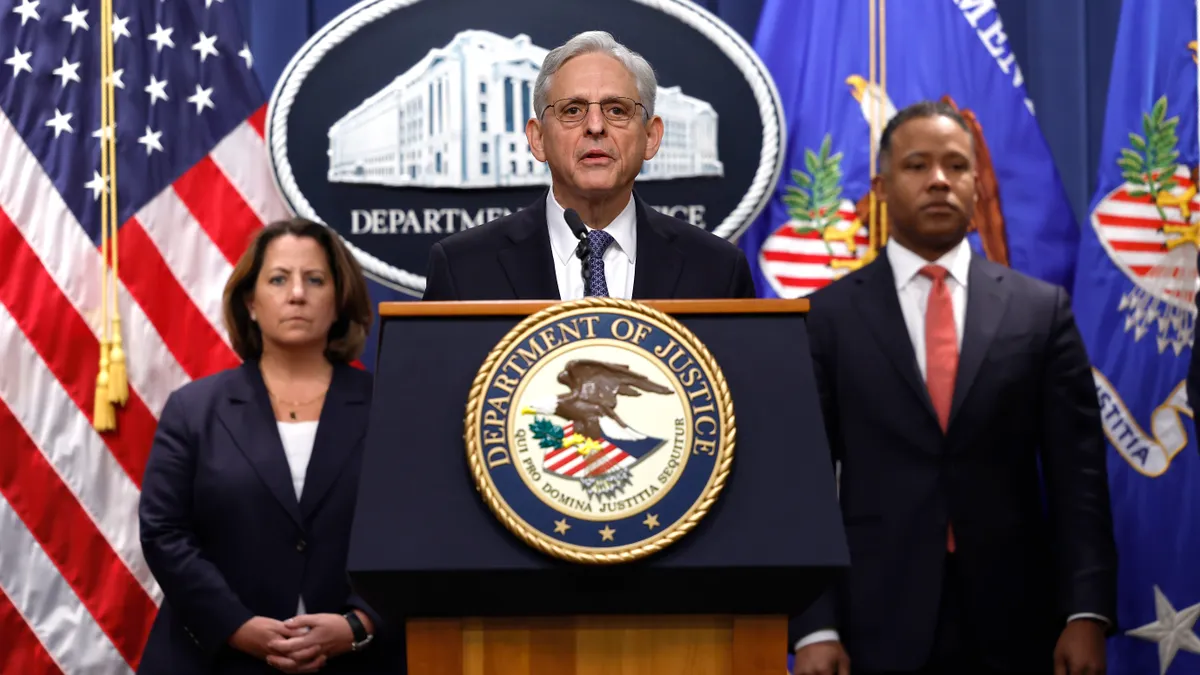Companies with aggravating circumstances can still earn generous cooperation credit from the Department of Justice under changes the agency has made to its corporate enforcement policy (CEP), Assistant Attorney General Kenneth Polite, Jr., announced Tuesday.
“In many situations, companies that have identified potential wrongdoing and are weighing whether to self-disclose … will be concerned that an aggravating factor may prevent a company from obtaining a declination,” Polite said at Georgetown University January 17. “That concern may have led companies and their outside counsel to conclude, under the prior version of the CEP, that it is more prudent not to disclose the misconduct… The revisions make clear that there will be very different outcomes for companies that do not self-disclose, meaningfully cooperate with our investigations, or remediate.”
Put another way, if a company is thinking about burying potential criminal acts within its operations because they could implicate leadership or it’s been caught up in these types of problems before, among other aggravating factors, they could be missing out on a chance to get meaningfully softer treatment by not coming forward.
“These are complex discussions in boardrooms, and each company and each outside counsel should, of course, choose to do what is in the best interest of the company,” said Polite, pictured above with Attorney General Merrick Garland and Deputy AG Lisa Monaco. “But … make no mistake: failing to self-report, failing to fully cooperate, failing to remediate, can lead to dire consequences.”
Cooperation incentive
DOJ created its voluntary self-disclosure incentive program in 2016 and since 2018 it’s been applied to all corporate cases prosecuted by the agency’s criminal division, not just those stemming from the Foreign Corrupt Practices Act (FCPA), which was the incubator of the cooperation standards.
Under the changes, DOJ will give credit to companies with aggravating factors if they voluntarily self-disclose as soon as they learn of the problem, had controls in place that helped identify the problem and provided extraordinary cooperation to DOJ after they came forward.
The factors are extensions of how the agency already hands out cooperation credit; the difference is in the way they’re applied to companies in which the misconduct involves, say, executive management rather than a rogue operation, or leads to significant profit, or is particularly egregious or pervasive or is recidivist — something the company has been caught doing before.
Companies with these factors would have had a hard time getting credit before, but now they have a path to get reduced fines, escape a finding of guilt or benefit from a declination of prosecution — albeit with disgorgement of profits.
How much fines are reduced is based on a formula that takes into account the company’s circumstances and how much it cooperates.
For example, if a company voluntarily self-discloses what it learns, fully cooperates with the DOJ and takes steps to prevent the problem from happening again, but the problem is bad enough that a criminal resolution is still warranted, the agency will recommend to the judge a penalty reduction.
The Swiss-based technology company ABB, for example, avoided a guilty plea and benefited from a lower penalty recommendation for an FCPA violation even though it was a recidivist because it demonstrated it was prepared to voluntarily disclose the wrongdoing by some of its subsidiaries, was cooperative and remediated the problem.
“The department weighed both the early detection of the misconduct and the intent to disclose it significantly in ABB’s favor,” Polite said.
How much the agency will recommend lower penalties depends on factors it lays out in a formula, with companies able to see recommended penalties lowered by as much as 75% of the low end of federal sentencing guidelines.
“Each and every company starts at zero cooperation credit and must earn credit based on the parameters and factors [that are] outlined,” Polite said.
By making the recommended fine-reduction formula relatively detailed, the agency is hoping to give prosecutors a lot of flexibility in choosing how much credit to give a company.
“Having a greater range … will allow our prosecutors to draw greater distinctions among the quality of companies’ cooperation and remediation,” he said.
“The policy is sending an undeniable message,” Polite added. “Come forward, cooperate, and remediate. We are going to be closely examining how companies discipline bad actors and reward the good ones.
“Our number one goal in this area – as we have repeatedly emphasized — is individual accountability,” he continued. “And we can hold accountable those who are criminally culpable — no matter their seniority — when companies come forward and cooperate with our investigation.”



















